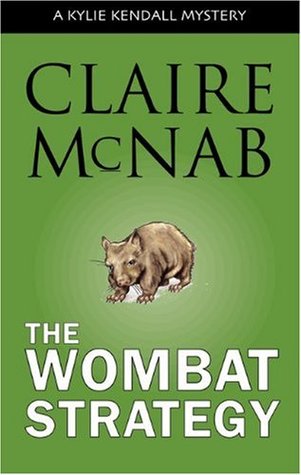Buy this from Bookshop.org to support local bookstores and the Lesbrary!
Vengeance Planning for Amateurs by Lee Winter was published February 2024 and is Lee’s first intentional romantic comedy. The book follows muffin baker Olivia Roberts, her beloved stuffed penguin Trip, and her band of book club misfits that meet at the local crime bookstore. When one of her exes steals Trip, Olivia sees red and has decided enough is enough. She has had a terrible string of relationships with people who have been varying levels of awful, and she decides it’s time to take her life back in the form of revenge against every ex that has hurt her. She posts an ad for a henchperson at the bookstore, and she is truly shocked when the person who sits across from her is none other than the owner of said bookstore: Margaret Blackwood. Margaret keeps to herself and is rarely seen. Olivia’s only real interaction with Margaret has been Margaret’s commentary from her office during Olivia’s book club. When the stoic and beautiful Margaret signs up to be her henchperson, Oliva isn’t sure why this brilliant, mysterious, woman would want to help her. However, Olivia’s other candidates are less than stellar, so Margaret gets the job. What ensues is an absolutely beautiful, chaotic, and laugh-out-loud story about two people that offer the other a chance to start over.
I am a huge fan of Lee Winter. I have read every book she has written, some multiple times. I was excited to see how she would handle a romantic comedy, a different flavor from her usual books (though almost every one of her others also made me laugh out loud at times). I was not disappointed. Nor was I surprised that even though it had that romantic comedy feel throughout, it still packed an emotional punch. There is a cleverness that is always present in Lee’s books, and this book was no different. While the baking puns are plentiful (and I enjoyed every one), there is also not a wasted word or character. Every plot point is well thought out, every person has a purpose. A romantic comedy follows a certain formulaic path, but even so there needs to be something new, and Olivia hiring a henchperson certainly adds something fresh. Every visit upon one of Olivia’s exes provides not only an opportunity for hijinks, but a moment for Olivia and Margaret to learn more about each other and grow as individuals.
As I said, there is an emotional component to this story that I felt was incredibly well written. While I won’t give spoilers, Lee handled Margaret’s backstory in a beautiful way that was written with immense care. The way she chose to give us insight into Margaret, through diary entries, offers an intimate look at her thoughts and emotions. Without those entries, I think it would have been difficult to understand someone that keeps her cards so incredibly close to her chest. But it allows you to see who Margaret truly is, and it provides context to her other actions throughout the book. (Some of those entries made me cry, but we are going to forgive Lee for that.) In a scene towards the end, I Lee captures an emotion in the best way I have seen in a novel dealing with this particular topic. It is a sentiment I will be thinking about for a long time.
Margaret and Olivia are two very different people, but I loved them together. In any pairing, there needs to be a balance, and as a reader you want to be able to understand why these people are drawn to each other. Margaret and Olivia each offer the other something that has been missing in their lives. Olivia has only ever been treated as expendable, as someone people use to get what they want and leave when they don’t find her useful any more. She has never been put first and has been with some truly terrible people. She has rarely experienced loyalty or someone asking: what do you want? What can I do for you? Other than her sister, she has never had someone who had her best interest in mind. With Margaret, she has found someone loyal and who not only has her best interest in mind, but that actively goes out of her comfort zone to help her. Margaret’s life in many ways has been closed off and has been dark for many years. Olivia is the opposite of that, and offers Margaret light in a way she has been desperately needing. Even more, despite all the things that have been thrown at her, Olivia continues to shine that light, and I do think that is part of why Margaret is so drawn to her. I loved these two together. I loved how they each showed through actions how they felt about the other, even before any words of that nature had been uttered.
I will also always go a little feral for a character that goes into protective mode, and this story has that in spades. I think Lee is one of the best at writing that dynamic, and I adored those scenes. I also happen to think that she is the best at writing two oblivious people who clearly like each other, but are so lesbian that the thought never occurs to them that the other might like them back. That scenario is top tier in this novel, and I loved every moment.
If you’re in the mood for a romance with unhinged chaos, laugh out loud moments, character growth, a cast of hilarious side characters, and beautiful moments of communication and vulnerability, this is your book. I can’t recommend it enough.




